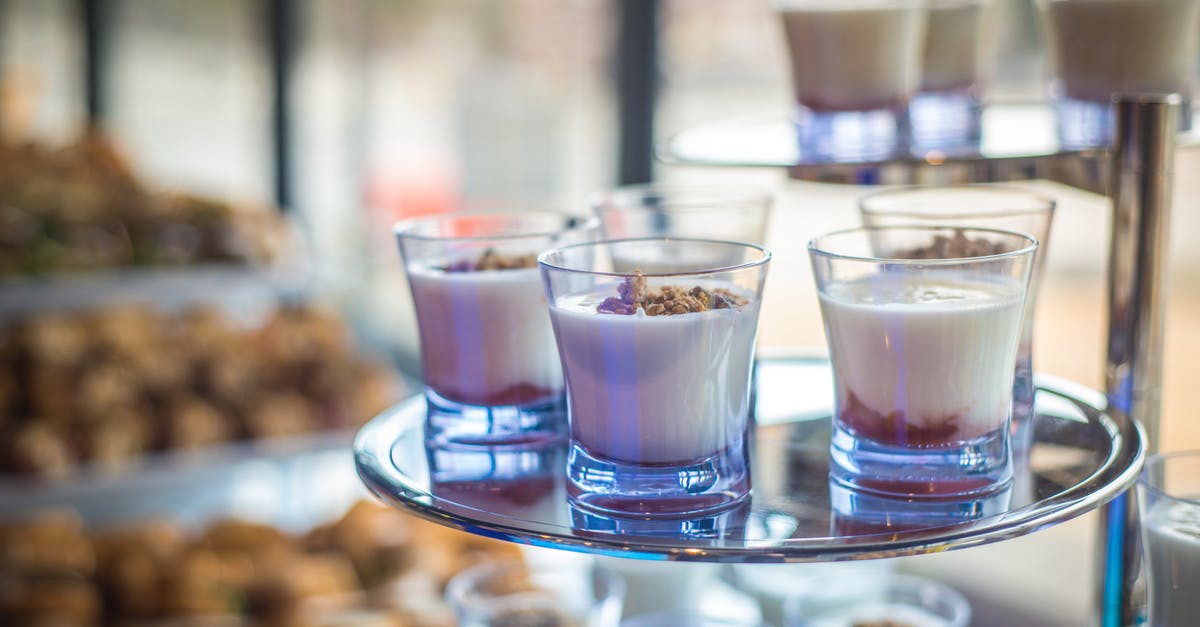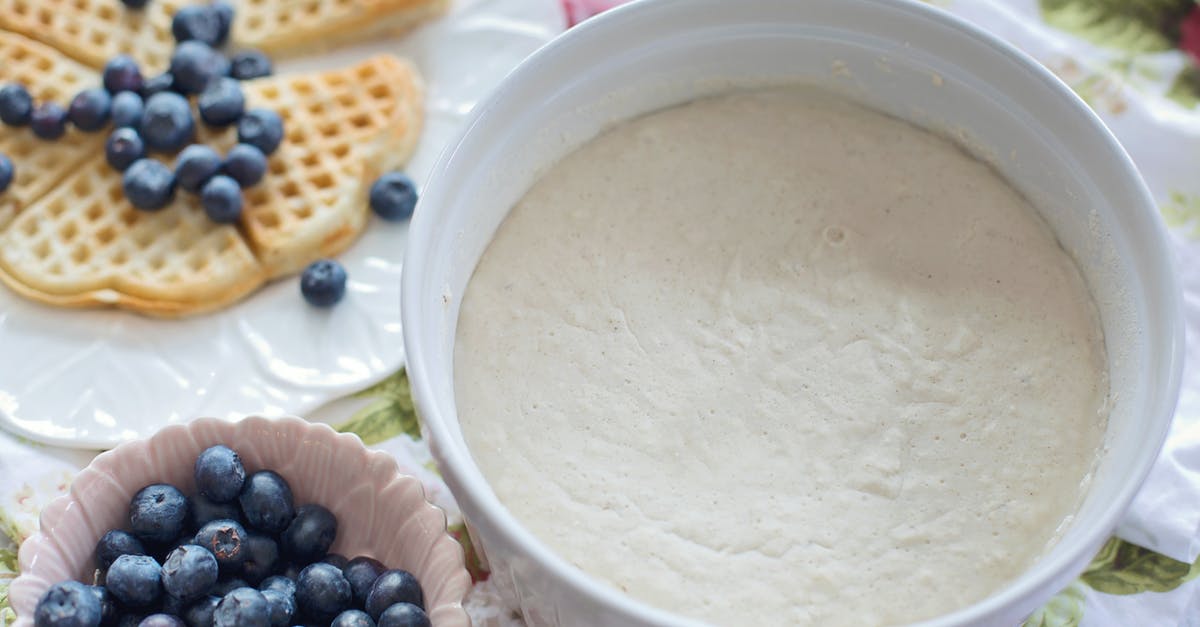Do commercial yogurt starters (i.e.: store-bought yogurt) actually degrade over time?

I've seen quite a few sites make the claim that commercial yogurt starters will stop working after a few generations (example), so home yogurt makers should use "heirloom" starters. However, many of the people making these claims seem to be trying to sell or advertise something. So I'm really curious whether there have been any studies showing the multi-generational success rate of commercial v. heirloom yogurt starters.
Does anybody know?
Best Answer
Off the top of my head, I don't know of scientific studies that have tested this. But even if there were, I don't think they'd necessarily be meaningful in comparing a particular store-bought culture to a particular "heirloom" culture.
The general thing to remember about store-bought cultures is that they are bred for rapid and consistent fermentation (generally in very clean and precise conditions), and they are propagated on a regular basis. (That is, they generally aren't expected to survive intact for many days or weeks in a fridge before growing again.) They also tend to have a few very specific bacterial strains added in specific amounts, and that mixture is kept constant. (Usually, companies add bacterial cultures directly for each new batch, rather than inoculating with a "starter" from an old one; this ensures consistency.)
"Heirloom" cultures may have a greater variety of microorganisms, some of which may be adapted to surviving longer times between batches or fermenting in less precise conditions.
I'd say that when store-bought cultures "fail" or become "less potent" after a few batches at home, it could be due to a few different factors:
- Culture was stored too long between batches, and some components died off
- Storage conditions between batches were problematic (e.g., less optimal temperature, bad pH)
- Less precise culturing conditions caused the "equilibrium" between various microorganisms in the culture to be messed up, perhaps leading to overgrowth or undergrowth of some elements, making the resulting product less consistent
- Other microorganisms were introduced (usually inadvertently through contamination), which compete with or otherwise imbalance the growth of the original culturing ones; sometimes storage can also affect relatively relative populations here too
There's no guarantee that a product advertised as an "heirloom" culture will necessarily do better for your particular yogurt-making regimen. I have certainly heard of people having mixed results ordering online yogurt cultures. But if it is a culture that has gone through many cycles of less-precise ("home") propagation, it may last longer and be more adaptable to various changes in yogurt-making regimen than the specific mixtures found in commercial store-bought yogurt. Such "heirloom" cultures have been literally "bred" for a different purpose.
Pictures about "Do commercial yogurt starters (i.e.: store-bought yogurt) actually degrade over time?"



Does yogurt starter last forever?
Eternal Yogurt: The Starter That Lives Forever : The Salt Yogurt enthusiasts are rediscovering heirloom yogurt starters, many of which originated in countries with long traditions of yogurt-making. These bacterial cultures, which live on milk, can regenerate in one batch after another.Can you use store-bought yogurt starter?
You can go one of two ways with your starter: You can use a few spoonfuls of a store-bought yogurt that you like, or you can buy a powdered starter from the store (or online). I prefer using a few spoonfuls of plain yogurt, but the strain tends to weaken as you use it over subsequent batches.Can you use commercial yogurt as starter?
YOGURT AS A STARTER CULTURE Using a quantity of existing yogurt is a common way to inoculate milk for a new batch of yogurt. When purchasing commercial yogurts look at the ingredients list and make sure it contains live cultures and does not contain any flavours or additives. Plain Greek yogurt is the best choice.How many times can you reuse yogurt starter?
Usually, you can make 3-4 batches before you start over with store-bought yogurt. However, traditional yogurt starters for sale online are re-usable for a much longer time. Read more about yogurt starters for homemade yogurt here.Which brand of yogurt is the best starter for homemade yogurt?
More answers regarding do commercial yogurt starters (i.e.: store-bought yogurt) actually degrade over time?
Answer 2
I've been making traditional yoghurt all my life as my mother taught me. The only difference being that I bought a basic heating maker because my hot water system here is outside which is a problem in winter.
Both she and I have always bought a small container of pot set natural yoghurt (preferably organic) from the supermarket as a starter. The only time it's needed to be replaced is when we've been slack about putting on the next batch and, in a moment of weakness, eaten the starter. Some of mine have been a couple of years old and, as long as the yoghurt has been "set" well when made, never lost any of their ability. Also good to know is that using raw or un-homogenised or pasteurised milk works faster and gives a stronger enzyme base to the yoghurt, and therefore the starter.
I will add that if you have a hot water system in a closed space placing the yoghurt mix on top with a larger container of some kind upside down over the top is still my favourite way to do it and it also saves the power of having to run an extra appliance.
Sources: Stack Exchange - This article follows the attribution requirements of Stack Exchange and is licensed under CC BY-SA 3.0.
Images: Lukas Hartmann, George Milton, Skitterphoto, Jill Wellington
